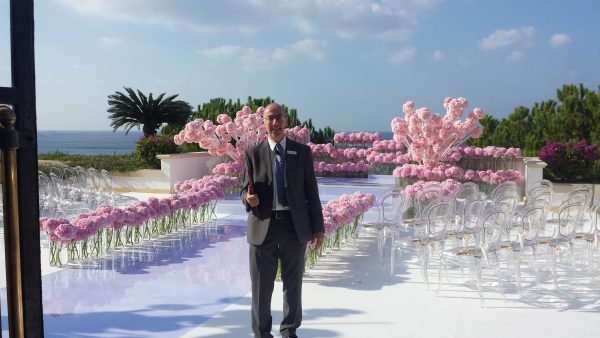Where do you begin, when planning your wedding?
If nothing else, consider these points:
- The budget
Obviously, this is the bottom line. You need to work together with anyone who is helping you here (probably your family?), and decide rationally what you will spend. It’s no good getting carried away with enthusiasm – you need self-discipline.
Big as the occasion may be, you do not want to bankrupt yourselves. And it’s worth pointing out that the amount spent does not guarantee the success of the marriage itself!
The event is (or should be) a ceremony; it should not be an attempt to show off how rich or extravagant you are. Should the reception mean more than the vows?
Good taste and sincerity are more important.
This doesn’t mean that you can’t have a few OTT touches (budget permitting), but these should be a bonus rather than what you are aiming at. There are probably certain elements that you will insist on, and it’s as well to discuss these at the outset, so that they aren’t overlooked later.
The budget will also dictate the ceremony, participants, reception and number of guests to invite, but that is something I cover elsewhere, notably in my book “Your Wedding Guide”.
- Date & location
Naturally, it will be more expensive to schedule your wedding at peak times (such as summer holidays, Christmas or around Valentine’s Day). You may want to avoid major events, such as World Cups and holiday season, when your potential guests may be otherwise engaged.
You’ll need to consider climate too, if you want an outdoor wedding. Or, at least, a Plan B.
The venue should, of course, be where you want it to be, but if it’s in an exotic location, your guests may have to go to a lot of expense and trouble to attend, so keep that in mind.
Make sure you visit the venue, ask questions and ensure that you really want to have your ceremony there.
- Other Suppliers
As soon as you have settled on your budget, start choosing other suppliers that you may need. Like the venue, which may want a year or more advance warning, you should allow plenty of time, in order to secure the supplier of your choice.
Among others, you will need to consider florists, caterers, musicians and, not least, celebrant. Where possible, you should meet with these first, so you can feel confident you have made the right choices. All that takes time, so allow for that.
- Choosing theme and colours
It’s easy to get excited and let your imagination run away with your wallet. Keep your budget in mind, use wedding books and planning guides and whatever resources are available to you.
Do not over-decorate. Make full use of flowers and candles.
Be creative with the colours. These may reflect the bride’s personality. Vivid colours (tastefully combined) can be most effective.
- Vows and music
The vows are one of the most important elements of a marriage. They should be well-planned – and audible. They are a public declaration of your mutual feelings, and should not be under-valued.
Equally, the music should be planned carefully and be clearly audible. Make sure you choose lyrics that you want your guests to hear!
Hopefully, the planning will be a team effort (maybe even the groom will be willing to participate!). If approached in the right way, it can be enjoyable and exciting, and the result will be so worthwhile.
For further advice, please contact Michael.

